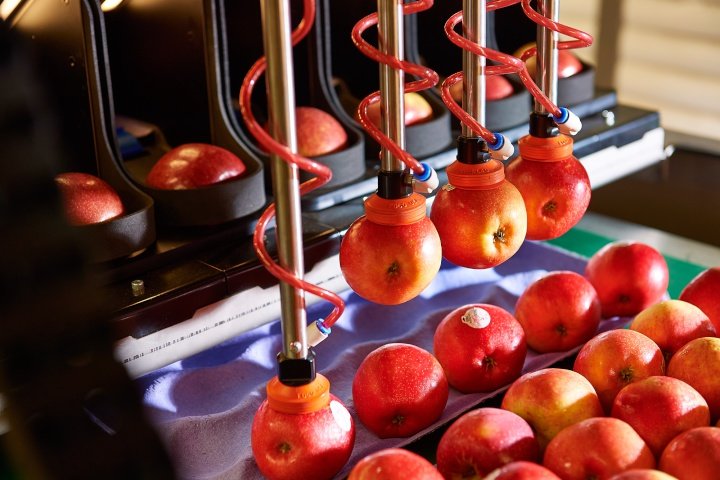Here come the (horticulture) robots: Robotics Plus eyes global expansion with new CEO

If you haven’t heard of Robotics Plus by now, it’s a business you should get to know. The Bay of Plenty company has been going from strength-to-strength in the lucrative ag-tech industry through its technology that simplifies manual labour type tasks that have been around for decades.
CTO Dr Alistair Scarfe said that while automation made its way into manufacturing a while ago, agriculture hasn’t innovated in the same way.
“The paradox is that while global demand for fresh produce continues to grow, labour shortages make it increasingly difficult to manage crops. The available labour for orchard and packhouse work is steadily reducing while new plantings will require significant increases in available labour,” he said.
This is where Robotics Plus’ vision lies, Scarfe said: to creative autonomous solutions for repetitive tasks in horticulture, like apple packing, while creating higher skilled jobs for staff.
And now, that the company is delivering on that vision, Dr Glenn has been brought on board to take it to the next level. Saunders says the time was right to expand after a strong period of growth.
“We are very pleased to have attracted someone of Matt’s calibre, he brings over 20 years of experience in business management and the commercialisation of science and technology,” he says.

Dr Matt Glenn
Dr Glenn was formerly the CEO of Hill Laboratories, a New Zealand-based analytical testing labatory, which is a role he had held since 2014. Prior to that, he was at Fonterra and Ballance Agri-nutrients, as well as a stint at biotech start-up Genesis Research and Development.
He says he’s excited to be joining Robotics Plus due to its ambitions to lead the world in robotics development in the food and fibre industries.
This follows several big plays by the company in 2018. Earlier this year, it secured investment and a partnership agreement from Yamaha Motor Co to support its growth plans.
And in May, it signed a distribution agreement with Global Pac Technologies to take the robotic apple packers it invented in the Bay of Plenty global. The machine identifies and places apples into trays, and can safely handle up to 120 fruit per minute – the same output as two people doing the apple distribution. The machines are now operating in packhouses in New Zealand and the USA.
Speaking to Idealog last year, Saunders said that while there are concerns people’s jobs could be replaced by these machines, the reality is there’s not enough people there to meet the demands of the horticulture industry.
“Our real focus is on labour and efficiency,” Saunders says. “If you look at the New Zealand apple industry we employ 14,000 people, 50 percent are RSE (Recognised Seasonal Employer) workers, 25 percent are backpackers, 25 percent are Kiwis. It’s high risk and the costs of labour are continuing to increase, but technology costs are coming down, so it could quite affordably replace some of those tasks.
“Robotics, in my view, won’t displace a whole lot of jobs. The technology will create new jobs of a different kind and create the ability for people to be more self-employed. We’re also creating new education opportunities.”
The apple packers are the first release in a range of technologies that are yet to be launched. These include an agricultural vehicle that can drive itself autonomously without a driver, a robotic kiwifruit harvester, a robotic pollinator, a crop estimator, and several other commercially sensitive projects that are under wraps.
One thing all of the technology being developed aims to do is address major issues in the horticulture industry, like an increasing demand by consumers for fresh fruit and labour shortages.
Going forward, the company is now focused on finding more engineers to add to its growing team of 27 staff and eight researchers.




